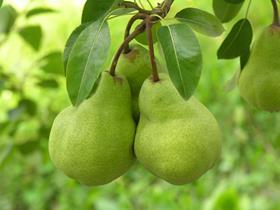
The first ever shipment of Argentine topfruit has been sent to China under an export certification programme developed by Senasa and China’s General Administration of Quality Supervision, Inspection and Quarantine (Aqsiq).
The trial, which consists of two containers, will look at how the fruit withstands the cold treatment to which it must be subjected during transit under the terms of the protocol.
A delegation of Chinese inspectors is currently touring production areas and packhouses in northern Patagonia to monitor the certification programme in a visit expected to conclude on Friday. The visit forms part of the protocol signed last summer between Argentina’s agriculture ministry and Aqsiq to allow fresh fruit exports to China.
In particular, it is believed that China could prove a good potential market for Argentine-grown Packham’s pears.
“This first experiment is to see if we can comply with the requirements set out under the protocol opens up good prospects for the region,” Daniel Satragni of the Argentine Chamber of Integrated Fruit Growers (Cafi) told Rionegro.com.ar.
PAI, Kleppe, Trevisur, Zetone, Expofrut, Patagonia Fruit Trading, Miele and Tres Ases are the companies financing the programme.
Stratragni noted that the prospects for Argentine exports to China were good, in many cases these were subject to higher tariffs than other Southern Hemisphere countries. Chile, for example, pays an average tariff of 1 per cent on topfruit shipments to China whereas in Argentina’s case this was 30 per cent.
According to Argentina’s Chamber of Exporters (Cera), China imported 38,724 tonnes of fresh apples in 2013, a fall of 37 per cent on the previous year. The decline was largely due to decreased spending on gifts to public officials during national holidays and the temporary suspension of imports from some countries for safety reasons. Chile accounted for 62 per cent of imports, New Zealand for 34 per cent and France for 4 per cent.
In the case of pears, the volume was much lower with 3,766 tonnes imported during 2013, an increase of 52 per cent on 2012. The main suppliers were the US (67 per cent), Mexico (17 per cent) and Belgium (4 per cent).






No comments yet